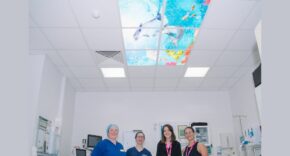The Health Secretary, Matt Hancock has just released a 2019 green paper entitled ‘Prevention is better than cure’. The document sets forward a vision to transform the government’s methods of prevention in the healthcare environment. The paper continues the work in preventing childhood obesity and social prescribing.
A preventative approach to healthcare is a central part of the long-term plan set forward by the NHS. The project incorporates healthcare technology and will look for digital tools that can help to offer individuals precise healthcare advice depending on their needs through predictive prevention. It will also focus on early support measures provided by community and primary care services.
The green paper comes after identifying a serious lack of focus on preventative care. Matt Hancock explains; “In the UK, we are spending £97 billion of public money on treating disease and only £8 billion preventing it across the UK. You don’t have to be an economist to see those numbers don’t stack up.”
What does ‘Prevention is better than cure’ involve?
The green paper covers a variety of plans for 2019 some of which include bold targets such as reducing childhood obesity by 50% by 2030. The project also targets diagnosing three-quarter of cancers at stage one and two by 2028.
Other considerations include sequencing 5 million genomes within five years. By 2019, the NHS hopes to offer whole-genome sequencing to all children with cancer and who are seriously ill. This plan also includes adults with rare cancer or disease.
Social prescribing is also a key part of the prevention green paper. The paper sets forward a goal of making social prescribing available to all local areas by 2023 and subsequently reducing social isolation and loneliness too.
Improving mental health during pregnancy and motherhood is covered. The plan hopes to increase specialist mental health services to more women, with a further 30,000 receiving the services during pregnancy and the first year after childbirth.
As a result of the green paper, consultations will also take place on methods to encourage more employers to support disabled people in work and to improve occupational health.
This approach to healthcare has the potential to benefit many lives. Matt Hancock explains; “A focus on prevention and predictive medicine isn’t just the difference between life and death, it’s the difference between spending the last 20 years of your life fit and active, or in constant pain from a chronic condition. So our focus must shift from treating single acute illnesses to promoting the health of the whole individual. That requires more resources for prevention.”
You can read the full ‘Prevention is better than cure’ document here.













